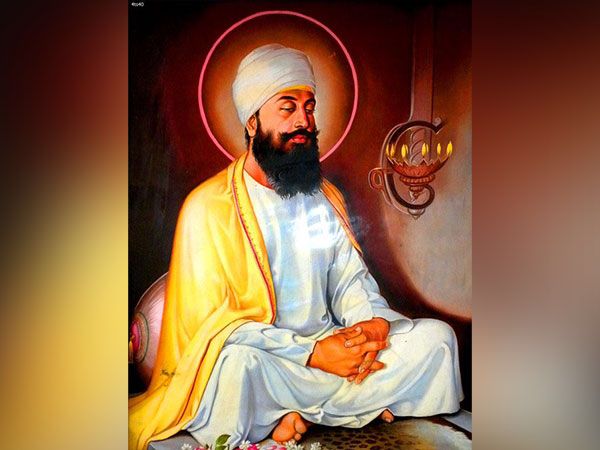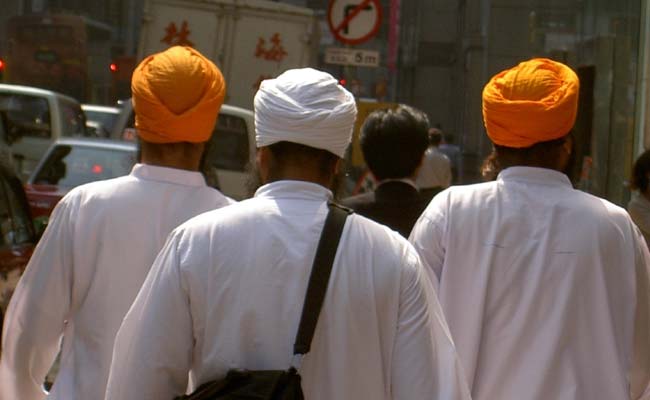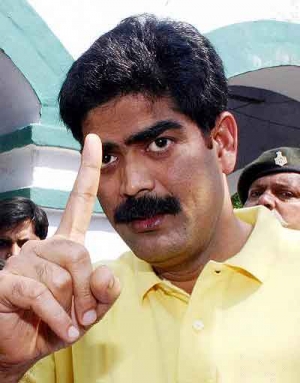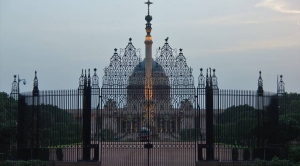Guru Tegh Bahadur: The Saintly Warrior Whose Sacrifice Still Shapes India’s Conscience

Nov 25, 2025 | New Delhi Holiday Declared in Delhi and Uttar Pradesh to Mark His 350th Martyrdom Anniversary On the 350th anniversary of Guru Tegh Bahadur’s martyrdom, Delhi and Uttar Pradesh have declared a public holiday, inviting people to pause, reflect and honour a man whose courage, compassion and unshakable moral strength shaped the soul of India. The day is more than a commemoration — it is a reminder of a legacy built on defending the right to faith, protecting the oppressed and standing firmly for freedom of conscience. The Man Behind the Legend Guru Tegh Bahadur, the ninth Sikh Guru, was born in 1621 in Amritsar to Guru Hargobind and Mata Nanaki. He grew up in an environment that blended spiritual depth with martial strength. As a young boy, he learned meditation and spiritual teachings from scholars while also mastering archery, horsemanship and swordsmanship — earning the name “Tegh Bahadur,” meaning “Brave of the Sword.” Despite his strength as a warrior, he was known for his calm presence, humility and deep empathy. Wherever he travelled, he encouraged people to live honestly, help the weak, reject tyranny and stay connected to the divine through compassion and courage. His teachings focused on spiritual freedom, justice and equality — values that remain at the heart of Sikh philosophy today. Why His Martyrdom Still Matters Guru Tegh Bahadur’s martyrdom is one of the most significant moments in Indian history. In the 17th century, under the rule of Mughal emperor Aurangzeb, religious persecution intensified. Forced conversions, destruction of temples and restrictions on cultural and spiritual practices were becoming more widespread. A delegation of Kashmiri Pandits — oppressed and fearing for their future — sought protection. Guru Tegh Bahadur made a decision that would echo across centuries: he chose to stand as their defender, not through violence, but through a moral stand so powerful that it exposed tyranny itself. He declared that if Aurangzeb could convert him, the spiritual leader of millions, then the Pandits would willingly convert. If not, they must be left alone. This challenge was both fearless and impossible to ignore. The Guru was arrested, tortured in the most brutal ways and ultimately executed on November 24, 1675, at Chandni Chowk in Delhi. His sacrifice was not for Sikhs alone — it was for the universal right of every person to practice their faith without fear. It was the first time in global history that a spiritual leader gave his life to protect the religious freedom of another community. This is why he is remembered as “Hind Di Chadar” — the Shield of India. A Holiday That Holds History and Emotion Today’s holiday is more than an administrative announcement. Delhi upgraded November 25 from a restricted holiday to a full public holiday, acknowledging the enormity of this once-in-a-century tribute. Chief Minister Rekha Gupta has been personally overseeing preparations for a grand commemorative event at the Red Fort — the very site tied to Guru Tegh Bahadur’s final moments. The three-day Gurmat Samagam includes a museum showcasing rare historical accounts, a light-and-sound show narrating his life, and soulful kirtans by seven Sangat groups. Security, traffic flow, cleanliness, medical assistance and crowd management are being carefully supervised to ensure that lakhs of devotees can participate smoothly. In Uttar Pradesh, all government offices, schools and institutions are closed too, symbolising collective respect for a martyr whose legacy belongs to all Indians. Why This Story Still Resonates Today Guru Tegh Bahadur’s life is not just history — it is a guiding force for modern India. His message has grown even more relevant in a world struggling with intolerance, misinformation and rising conflicts. His teachings remind us that: Courage is not noise but steadfastness in principles. Faith is personal, never enforceable. Human rights carry the highest moral value. Compassion is a form of strength, not weakness. Every year, millions remember him not for how he died, but for why he chose to die: to protect freedom, dignity and justice. A Legacy That Lives in Everyday India From schools that teach his values to streets named in his honor, to the Golden Temple’s daily prayers, Guru Tegh Bahadur’s presence continues to live in India’s cultural and spiritual fabric. His hymns — filled with wisdom about peace, fearlessness and detachment from ego — are sung across the world. More importantly, his sacrifice laid the foundation for the rise of Guru Gobind Singh and the formation of the Khalsa, which further shaped Sikh identity and the fight for justice. A Day to Remember and Reflect As Delhi and Uttar Pradesh come together to honor this extraordinary leader, the holiday offers a moment of pause — an invitation to understand the immense price paid for the freedoms we enjoy today. Guru Tegh Bahadur’s story is not just Sikh history. It is India’s history. It is humanity’s story. A story of standing tall when it matters most. His martyrdom anniversary is a reminder that the soul of a nation is built not by power, but by the courage of those who protect its people all its people, with love and unwavering moral clarity. Holiday in Delhi & Uttar Pradesh today on Guru Tegh Bahadur’s martyrdom day Today marks a powerful moment of remembrance as Delhi and Uttar Pradesh observe a public holiday to honour Guru Tegh Bahadur, a figure whose courage has echoed across centuries. His stand for freedom of faith was not just an act of bravery but a declaration that humanity must never bow before injustice. As both states pause their daily rush, people gather to reflect on a legacy that continues to shape the nation’s conscience. The commemorations around Delhi’s Red Fort carry a deep emotional weight, reminding us that the very grounds where he made the supreme sacrifice now witness thousands coming together in gratitude. Events, hymns, and historical exhibits allow people to reconnect with the values he lived and died for. In Uttar Pradesh too, the silence of closed offices and schools becomes a quiet tribute to the Guru’s enduring message. This day is more than a holiday. It is a reminder that courage can live forever, faith can withstand oppression, and principles can outlast time. As crowds gather and prayers rise, the spirit of Guru Tegh Bahadur continues to inspire generations.




